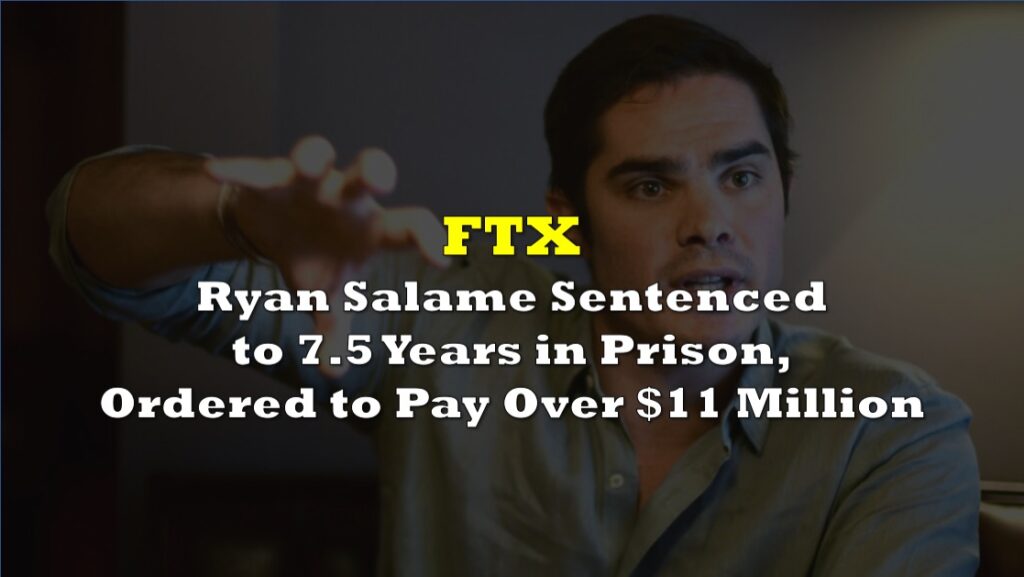Following the signing of FTX’s chapter 11 bankruptcy, the failed crypto mogul Sam Bankman-Fried has been going around town to explain his side and attempt restore his reputation.
But, documents never lie. In the bankruptcy proceedings, one of the assets revealed to be owned by FTX is the curiousity-inducing small bank in the state of Washington.
How small? The Farmington State Bank has a single location and only three staff as of this year. It didn’t even have online banking or a credit card.
In March, FTX’s sister hedge fun Alameda Research spent $11.5 million on Farmington State Bank’s parent company, FBH. According to the Federal Deposit Insurance Corporation, the bank’s net worth was $5.7 million; it was the 26th-smallest bank in the country out of 4,800 at the time of the investment.
But it is not only the peculiar stake that raised some questions. Back in 2020, Farmington State Bank was acquired by FBH whose chairman was Jean Chalopin. He is also the chairman of Deltec Bank, which, like FTX, is based in the Bahamas–but its most well-known client is a $65-billion crypto firm called Tether.
It’s unclear how FTX–based in Bahamas–was permitted to acquire a stake in a US-licensed bank, which would require approval from federal regulators. Banking professionals say it’s difficult to believe authorities would have knowingly permitted FTX to take control of a US bank.
Alameda bought a US bank (Farmington State) connected with Deltec and Tether, and then transferred it to FTX.
— Ben Hunt (@EpsilonTheory) November 24, 2022
There’s no way that the regulatory approval of a Bahamian HF buying a US bank was legit. No way.
FTX was a criminal enterprise from the start.https://t.co/KOslRXLMko
Furthermore, the little bank that could in Washington applied for membership in the Federal Reserve System. It was approved in June 2021 by the San Francisco Fed whose directors include Chalopin and Gemini Chief Compliance/Operating Officer Noah Perlman.
Gemini’s Earn program was recently revealed to function in partnership with Genesis’ lending arm. The latter announced that it would be halting redemptions and withdrawals on its lending products after FTX suffered liquidity crunches that made the firm crash.
Here’s the letter from SF Fed prez Mary Daly approving Fed Reserve System membership (SWIFT and wires) for the bank that SBF bought.
— Ben Hunt (@EpsilonTheory) November 24, 2022
That’s Deltec Chairman Jean Chalopin on the Board, as is Gemini Chief Compliance/Operating Officer Noah Perlman.
Burn. It. The. Fuck. Down. https://t.co/abdn8D33vE pic.twitter.com/XWSDAwKVOl
Farmington’s deposits had remained stable at around $10 million for a decade prior to the acquisition. However, the bank’s deposits increased about 600% to $84 million in the third quarter of this year, presumably after the Alameda investment.
According to FDIC records, nearly all of that increase, $71 million, came from just four new accounts.
It’s unclear what FTX had in mind for Farmington. The bank is currently known as Moonstone Bank online and its website makes no mention of Bitcoin or other digital currency, except to claim a desire to help “the evolution of next generation finance.”
The curious Farmington investment is one of the many surprises that were revealed during FTX’s bankruptcy proceedings. The crypto exchange, Bankman-Fried’s parents, and senior officials of the firm purchased at least 19 homes in the Bahamas valued at roughly $121 million over the last two year, according to official documents.
In his letter to staff after he signed the bankruptcy papers, Bankman-Fried claimed that there are “potential interest in billions of dollars of funding came in roughly eight minutes” minutes after inking the process final.
“Maybe there still is a chance to save the company. I believe that there are billions of dollars of genuine interest from new investors that could go to making customers whole. But I can’t promise you that anything will happen. Because it’s not my choice,” the FTX founder quipped in the letter.
Information for this briefing was found via The New York Times and the sources mentioned. The author has no securities or affiliations related to this organization. Not a recommendation to buy or sell. Always do additional research and consult a professional before purchasing a security. The author holds no licenses.









